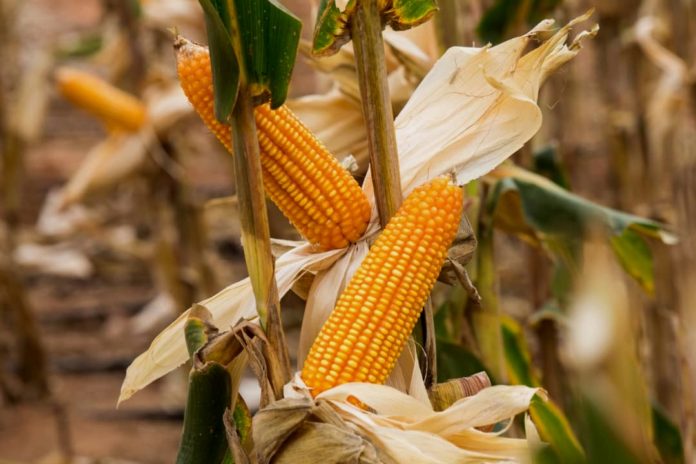On his farm in the state of Mato Grosso, Brazil’s grain basket, Ilson Jose Redivo finished planting his maize – also known as corn – crop a few weeks ago, acting quickly once he’d harvested the soybeans that he’d grown on the same fields.
In this region of west-central Brazil, the fields stretch as far as the eye can see and the schedule is well established: The farmer plants the two crops, soybean and maize, on “almost 100 percent” of his over 1,550 hectares (3,800 acres). The maize will be harvested in June.
The maize is a second crop, or “small crop,” which Brazilians call a “safrinha.” Over the past decade, the second crop has turned into Brazil’s main crop and taken an increasing share of world production.
This year’s expected production should hit a record, making Brazil the world’s leading maize exporter ahead of the United States, a position it has only reached once before, in 2013.
Production is expected to hit 124.9 million tons (up 10.4 percent compared to last year), of which 76.3 percent is second crop, according to the latest report from the National Supply Company (Conab), published this week.
This is despite a “delay in the soybean harvest” due to a “surplus of rain” in Mato Grosso, the country’s main producer of soybeans and maize, where the mild winter and the distribution of rainfall allow a second annual harvest.
Powered by GMOs
The increase in the price of the cereal grain, driven by the opening of maize ethanol plants from 2017, has encouraged producers to invest more in “safrinha,” says Redivo, who spoke by phone to AFP.”
Corn as a second crop has become more attractive, so we have acquired more fertilizers, genetically improved seeds and farm machinery that allows for faster and more accurate planting,” he stresses.
“We have been able to increase the area” devoted to corn cultivation, “improve our productivity and thus increase our production significantly.
“Genetically modified varieties now occupy almost all of Brazil’s cornfields.
With such production forecasts, “the country should increase its exportable surplus,” which will enable it to sell more abroad, points out Joao Pedro Lopes, of the commodity market analysis firm StoneX.
Geopolitical events and climate have put Brazilian corn in high demand, especially with problem harvests in the traditional corn powerhouses of the United States, Argentina and — because of the war– Ukraine, another grain basket nation.
Demand has also risen with the opening of the Chinese market following the signing of an agreement between Brasilia and Beijing in early 2022, Lopes says.
Challenges ahead
According to the US Department of Agriculture, Brazil could export 52 million tons of corn this year, up from 31.9 million tons in 2022, and dethrone the US, whose exports are projected at 49 million tons.
“Brazil is emerging as the competitor to the US and has the capacity to increase production further. There is still a lot of land available for this crop” on already opened agricultural plots, “and our productivity can still progress,” assures Enori Barbieri, vice president of the Brazilian Association of Corn Producers (Abramilho).
But to improve its performance, Brazil must “succeed in raising its investment in agricultural equipment,” in order to “speed up sowing and harvesting,” and “continue to improve its logistical infrastructure to dispose of production,” warns Lucilio Alves, a researcher at the Center of Advanced Studies in Applied Economics at the University of Sao Paulo.








